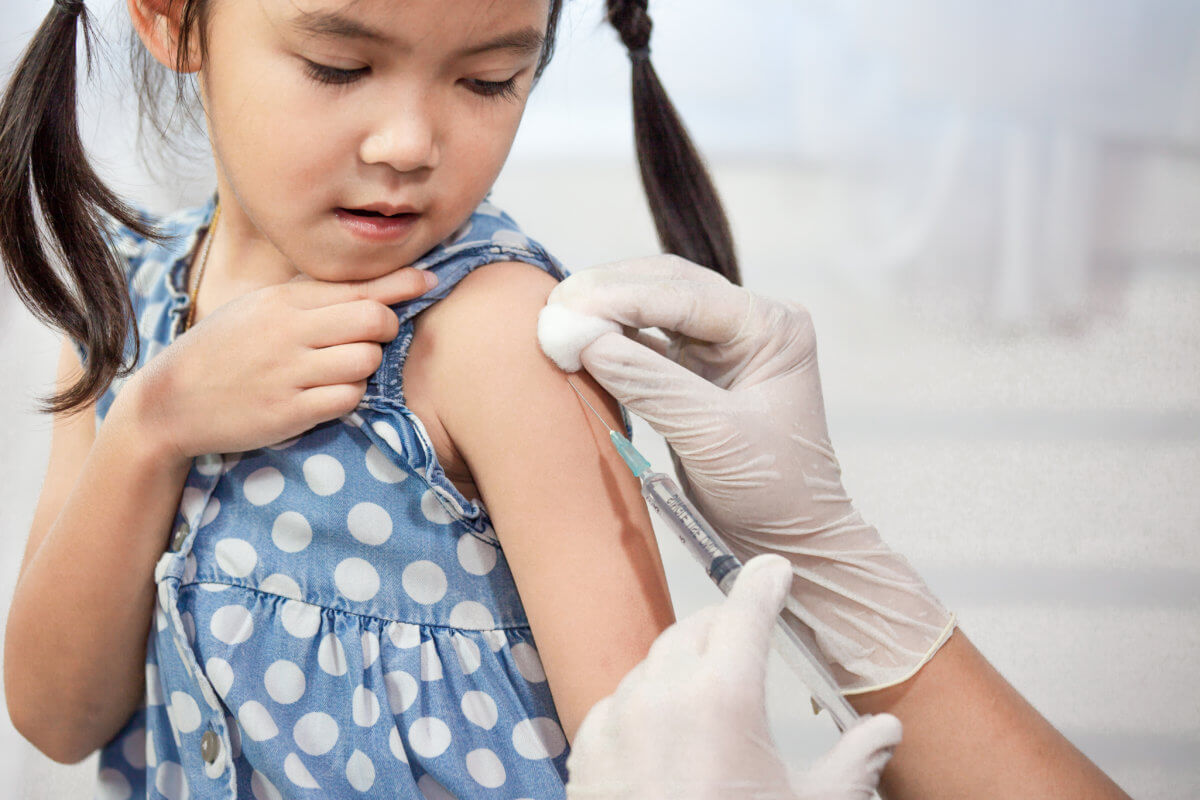
I am planning to get the flu shot for myself. I’ve heard I should also have my daughter vaccinated against the flu, but I am worried. I’ve heard so many conflicting things: that the shot can actually give her the flu and that she might get the flu anyway. So why bother? I want to protect her and do the right thing — I just don’t know what that is!
There are many theories and misconceptions out there about flu shots, including the ones you mentioned. Let’s tackle some of the big ones with information from the Centers for Disease Control and Prevention:
Can a flu shot give you the flu?
No, a flu shot cannot cause flu illness. The influenza viruses contained in a flu shot are inactivated (killed), which means they cannot cause infection. Flu vaccine manufacturers kill the viruses used in the vaccine during the process of making it, and batches of the flu vaccine are tested to make sure they are safe. In randomized, blinded studies, where some people get flu shots and others get salt water shots, the only differences in symptoms was increased soreness in the arm and redness at the injection site among people who got the flu shot. There were no differences in terms of body aches, fever, cough, runny nose or sore throat.
Is it better to get the flu than the flu vaccine?
No. The flu is a serious disease, particularly among young children, older adults and people with certain chronic health conditions, such as asthma, heart disease or diabetes. Any flu infection can carry a risk of serious complications, hospitalization or death, even among otherwise healthy children and adults. Therefore, getting vaccinated is a safer choice than risking illness to obtain immune protection.
What about people who get a seasonal flu vaccine and still get sick with flu-like symptoms?
Some people may experience flu like symptoms despite getting vaccinated because they may have been exposed to an influenza virus that is very different from the viruses the vaccine is designed to protect against. The ability of a flu vaccine to protect a person depends largely on the similarity or “match” between the viruses selected to make the vaccine and those spreading and causing illness. There are many different influenza viruses.
Is it too late to get vaccinated after Thanksgiving (or the end of November)?
No. Vaccination can still be beneficial as long as influenza viruses are circulating. The CDC recommends that providers begin to offer influenza vaccinations as soon as vaccines become available in the fall, but if you have not been vaccinated by Thanksgiving (or the end of November), it can still be protective to get vaccinated in December or later. Influenza is unpredictable and seasons can vary. Seasonal influenza disease usually peaks in January or February in most years, but disease can occur as late as May.
Is the “stomach flu” really the flu?
No. Many people use the term “stomach flu” to describe illnesses with nausea, vomiting or diarrhea. These symptoms can be caused by many different viruses, bacteria or even parasites. While vomiting, diarrhea, and being nauseous or “sick to your stomach” can sometimes be related to the flu — more commonly in children than adults — these problems are rarely the main symptoms of influenza. The flu is a respiratory disease and not a stomach or intestinal disease.
Pramod Narula, M.D .is the Chairman of the Department of Pediatrics at NewYork-Presbyterian Brooklyn Methodist Hospital.




















